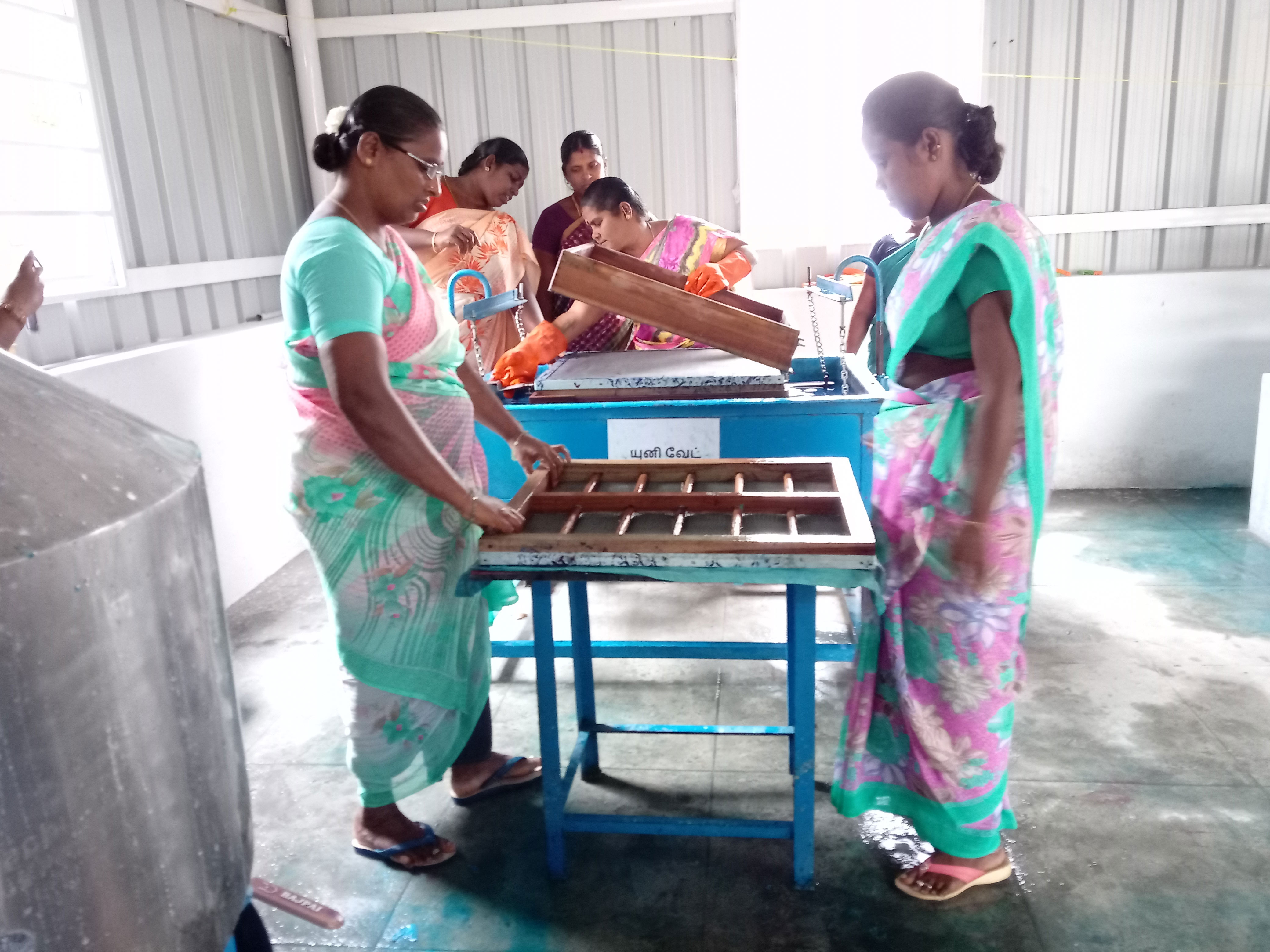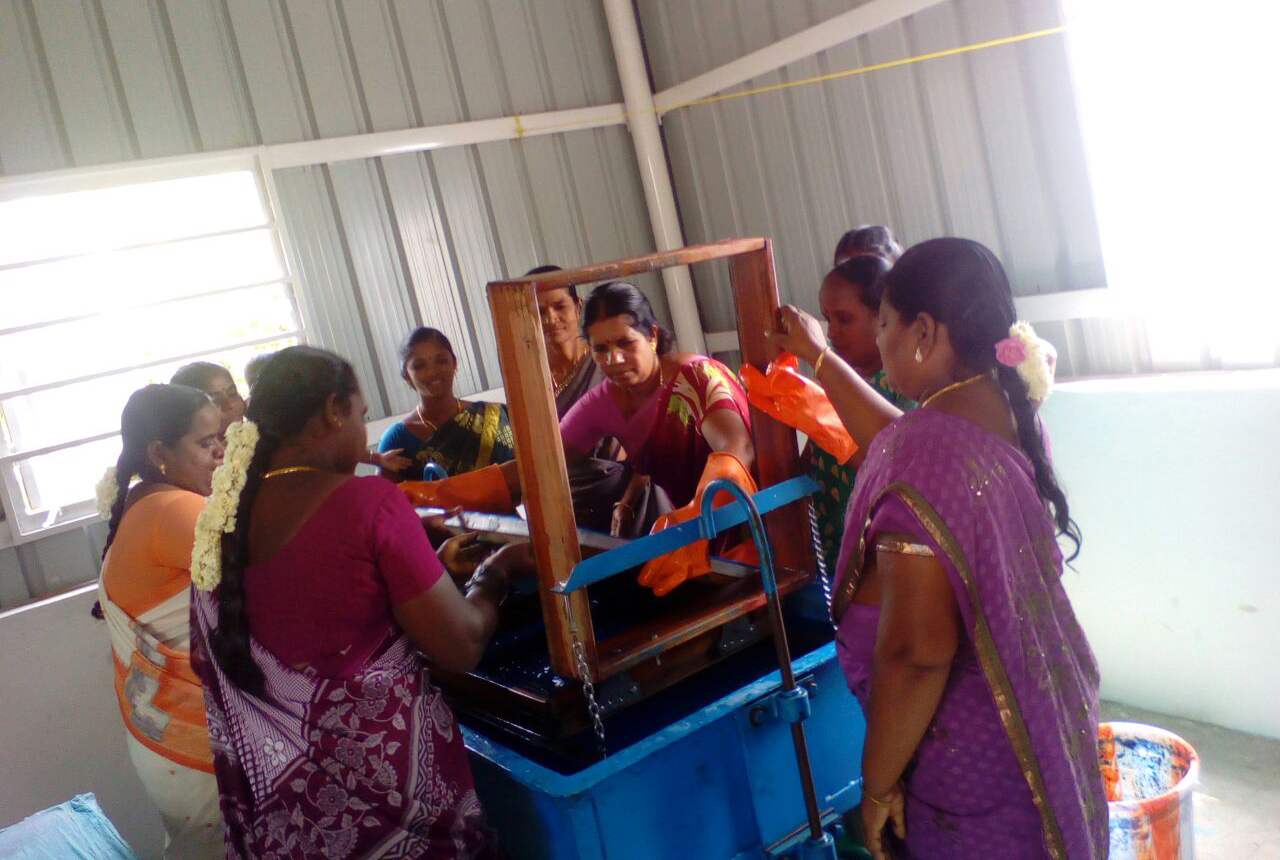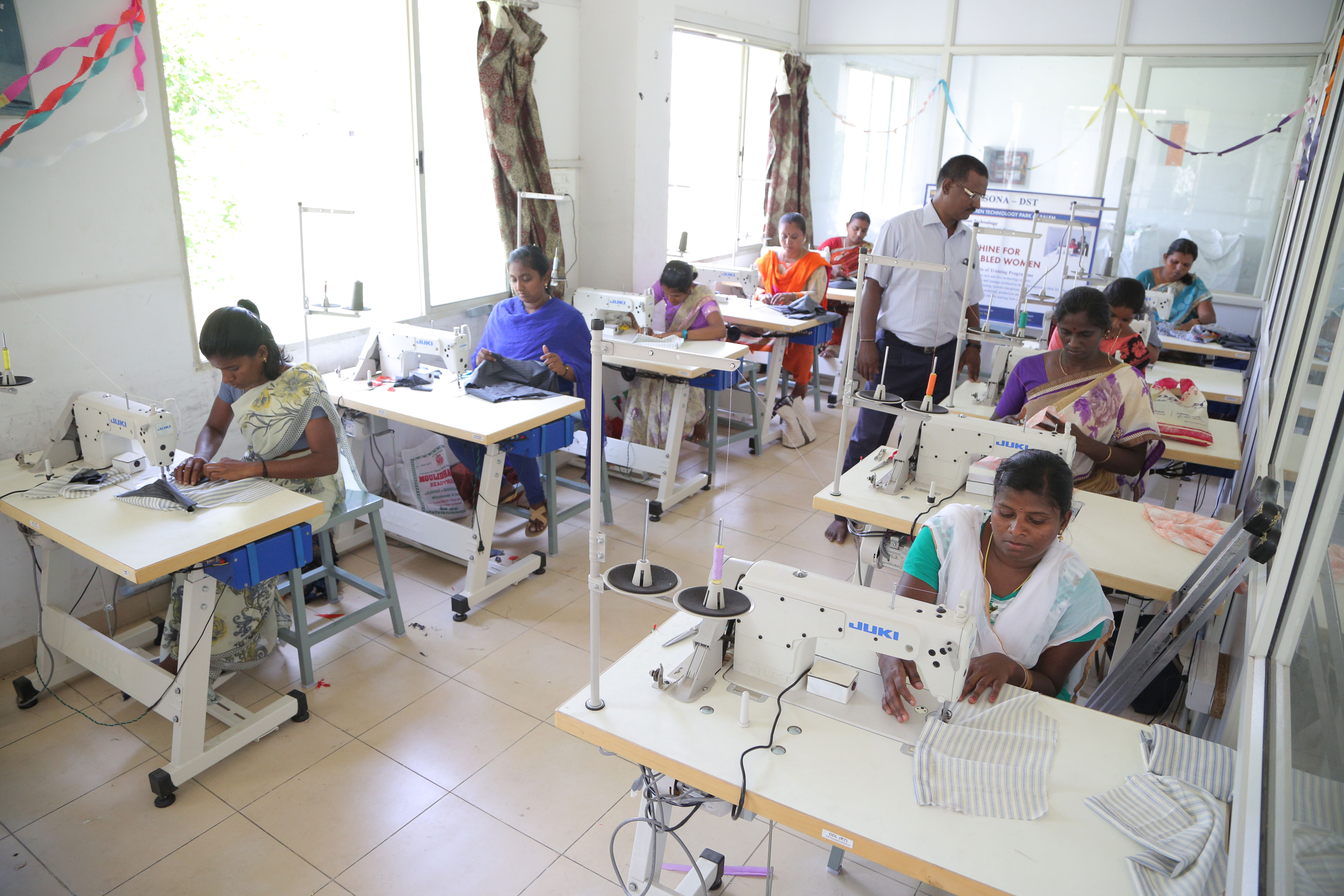

How Sona College inspired 360 rural women to use waste to their advantage
When the experts from the Mechanical Engineering department at Sona College of Technology found out that Salem alone generates 335 tons of solid waste per day, they decided to do something about it with their technological know-how. Backed by Vice Chairman Chocko Valliappa’s vision of empowering communities, especially women, and the government’s ban on plastic products, A. Ranjith Kumar, Assistant Professor, saw an opportunity that would not only benefit the rural women but also the environment.
Ranjith set out with a team of five to identify women from areas around Salem, who could be trained in recycling waste paper into usable products. For this, they first modified the waste paper recycling machine to make it easy to use and less strenuous. The team’s approach was to add innovations like safety sensors, energy-saving motors, customized paper cutter – to ensure the paper recycling process is smooth, efficient and safe.

The team from the Women Technology Park, Sona College, went beyond just selecting women – they had to often act as counsellors too, visiting homes and sitting down with their families to explain the benefit that learning a new skill will bring to them, in terms of earnings, independence and being able to contribute to the wellness of the community they live in. Slowly, more women got interested in the project looking at the vast opportunity of recycling waste paper from nearby educational institutions and textile units.
With successful runs of the custom-made recycling unit and a robust training model in place, 360 women have been trained in 54 batches, to convert waste paper into usable items such as – paper bags, envelopes, office files and art paper, among other things.
The participants were taught end-to-end handling of waste paper, operating the recycling machine and basics of running a business. The women, most of whom would get random tasks on daily wages or some who were not working, saw the value through this technology intervention.
The math is simple, explains Ranjith – the village of Kandarkulamanickam (one of the areas from where the women were selected for the project) produces 280 kgs of wastepaper a day of which 150 kgs can be recycled. While one kg waste paper costs Rs 10, the products post recycling fetch Rs 150. Thus, giving a profit of Rs 80. This village can generate revenue of about Rs 40 lakh a year by recycling waste paper, with just four people working in a recycling unit.
“Salem alone generates 335 tons of solid waste per day, of which 21.7 tons (that is 6.5 percent) is paper waste. Using this machine, 71.4 percent of this paper waste can be recycled per day. This technology intervention can do more than just recycle 15.5 tons of waste each day, but also create economic growth from converting waste to wealth,” shares Ranjith. The recycling unit fulfils orders from local clinics and medium-sized hospitals and can be also used to handle other material, such as – waste fabric, threads, wooden scrap etc.
While some from the 360 women went on to become entrepreneurs and in turn provide others with jobs, many have also found relevant jobs in small scale industries nearby. The facilitators hope that this intervention will help minimise the use of plastic (plastic bags etc.) and contribute to the environment.
*The project, initiated with a grant under the Technology Development Programme of the Department of Science & Technology, Government of India in 2017, was recognised as one of the successful projects in 2022. It was operated under the Women Technology Park initiative of Sona College of Technology.
.jpg)
Turning Steel Waste to Paver Blocks Gives Rural Women Entrepreneurial Edge
.jpg)
Solar-Powered Food Dryer Brings New Ray of Hope for Farmers in Rural Salem

New Silver-Plating Tech Enables Salem Artisans to Expand Their Horizons

Differently-Abled Women Earn Respect and Living by Using Custom Sewing Machine